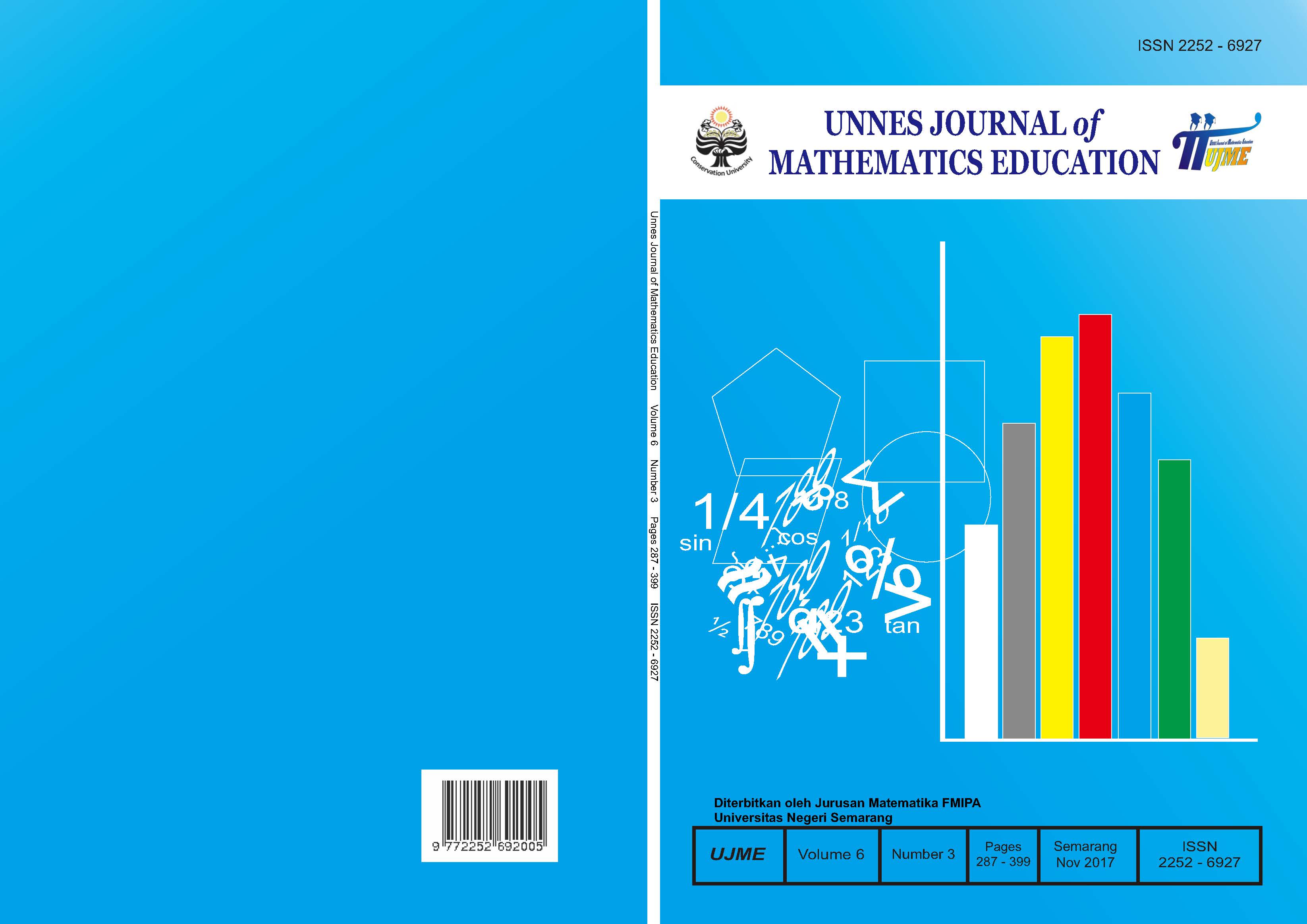Analysis of Mathematics Literacy of Students of Mathematics Education Department Viewed from Process Components
##plugins.themes.academic_pro.article.main##
Abstract
The PISA study measures the mathematical literacy of reasoning, arguing, and problem-solving skills. The research question is how the ability of mathematics literacy of mathematics education students viewed from process components. This research uses qualitative approach using documentation, observation, and interview. The results showed that 60 students or 100% were below level 1, with a score of less than 358. In the process component, communication skills obtained an average score of 3.29. Mathematising got an average score of 2.71. Representation got an average score of 3.08. Reasoning and argument got an average score of 2.54. Devising strategies for solving problems got an average score of 2.83. Using symbolic, formal and technical language and operation earned an average score of 3.16. Ability to use mathematics tools get an average score of 3.16. Based on the results of the study concluded that the literacy ability of mathematics education students viewed from the components of the process is very low.
##plugins.themes.academic_pro.article.details##
References
Draper, R. J. (2002). School Mathematics Reform, Constructivism, and Literacy: A Case for Literacy Instruction in The Reform-Oriented Math Classroom. Journal of Adolescent & Adult Literacy, Vol. 46 No. 6.
OECD. (2010). The Programme for International Student Assessment (PISA). http://www.oecd.org/dataoecd/61/15/46241909.pdf (diunduh 5 Oktober 2013).
Ojose, B. (2011). “Mathematics Literacy: Are We Able To Put The Mathematics We Learn Into Everiday Use?â€. Journal of Mathematics Education, Vol. 4 No.1 Hal. 89-100.
Stacey, K. (2010). “Mathematical and Scientific Literacy Around The Worldâ€. Journal of Science and Mathematics Education in Southeast Asia, Vol. 33 No. 1 Hal. 1-16.
Sugiyono. (2010). Metode Penelitian Pendidikan Pendekatan Kuantitatif, Kualitatif, dan R&D. Bandung: Alfabeta.
Wong, P. (2005). “Mathematical Literacy of Hong Kong’s 15 Year Old Students in PISAâ€. Education Journal, Vol. 32 No. 1.
Zubaidah. 2006. “Efek Pembelajaran Konstruktivisme Melalui Pembelajaran Matematika di SMPâ€. Jurnal Pendidikan, Vol. 7 No. 2 Hal. 89-101.
